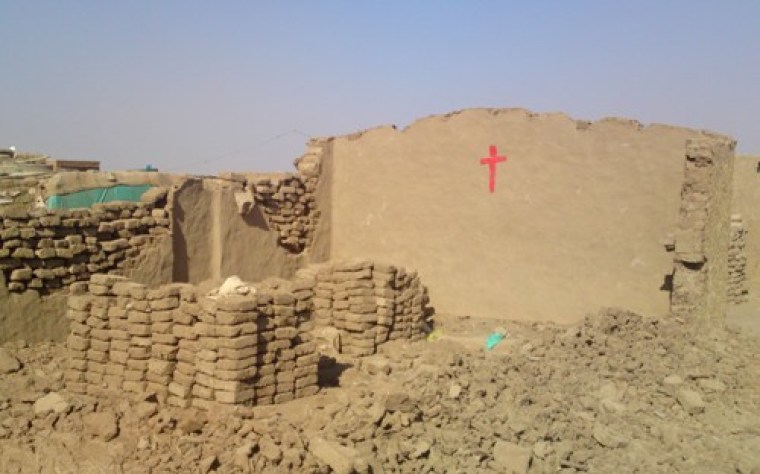
Besides the deportation to South Sudan of the secretary general of the Sudan Catholic Bishops' Conference on April 12, other Christians have been targeted in the past several weeks for arrest, interrogation and/or deportation. On April 21, as a South Sudanese church elder was worshiping at a Sunday service in Khartoum, officials from the National Intelligence and Security Service (NISS) detained him to pump him for information, the elder told Morning Star News.
Authorities questioned him for four hours before releasing him, he said.
"They told me to reveal to them 12 names of Christians who are active in evangelism in Sudan, but I told them I have no idea," said the elder, whose name is withheld for security reasons.
The right to manifest one's faith is a key provision of the International Covenant on Civil and Political Rights, to which Sudan is a signatory.
NISS officials have required staff members of a university campus-based ministry to report to them weekly following their arrest on Feb. 23; initially they were held and interrogated for a week, one said.
"The security officers verbally threatened to bury us alive if we did not give information on who was supporting these Christian activities," the Christian worker said.
After the Christian workers were released, for two weeks security officials ordered them to report to NISS offices on a daily basis for interrogation about links with Christian organizations, said the worker, whose organization name is withheld for security reasons. NISS officials confiscated the organization's equipment, vehicle and documents. They also went to the home of organization members and took academic papers, laptops, digital cameras, mobile phones and iPads, among other personal belongings, he said.
Authorities deported three of the group's workers to South Sudan in March after monitoring their movements and telephone calls, another member told Morning Star News.
"They gave me only 72 hours to leave the country," the Christian worker said. "They came to my house while I was away and took five laptops of my sisters, as well as my documents, identity cards, school documents and mobile phone. I thank God that He has been with me during the interrogation with the Security."
Some Christians from South Sudan have been given only 24 hours to leave Sudan, sources said.
On Monday (April 29), various church leaders in Omdurman, on the Nile River opposite Khartoum, organized a meeting to pray over the crisis facing congregations in Sudan.
Harassment, arrests and persecution of Christians have intensified since the secession of South Sudan in July 2011, when President Omar al-Bashir vowed to adopt a stricter version of sharia (Islamic law) and recognize only Islamic culture and the Arabic language. South Sudanese lost citizenship in Sudan and were ordered to leave by March 1, 2012, but an estimated 500,000 of them were reportedly stranded in the north due to job loss, poverty, transportation limitations and ethnic and tribal conflict in South Sudan.
Sudan and South Sudan signed an agreement on Sept. 27, 2012 to hold negotiations on citizenship rights for South Sudanese in Sudan and northerners living in South Sudan, but there has been no progress, according to the U.S. Commission on International Religious Freedom (USCIRF)'s annual report, issued this month. South Sudanese Christians in Sudan have faced increased hostilities due to their ethnic origins – though thousands have little or no ties to South Sudan – as well as their faith.
South Sudan's secession has served as a pretext for Bashir's regime to bulldoze church buildings once owned by South Sudanese and to deport Christians based on their ethnicity, sources said. The government's determination to rid the country of Christianity was evident on April 12, when security forces deported the secretary-general of the Sudan Catholic Bishops' Conference, Santino Morokomomo Maurino, and two colleagues to South Sudan.
Sudan Catholic Radio Network reported that NISS officials detained him in Khartoum and gave him three days to leave. Michael Fleury of France and an Egyptian identified only as Brother Hossam, both members of the De La Salle Christian Brothers in Khartoum, were also deported.
In a report issued this month, Christian Solidarity Worldwide noted an increase in arrests, detentions and deportations of Christians since December 2012. The organization also reported that systematic targeting of Nuba and other ethnic groups suggests the resurgence of an official policy of "Islamization and Arabization."
Due to its treatment of Christians and other human rights violations, Sudan has been designated a Country of Particular Concern by the U.S. State Department since 1999, and USCIRF this month recommended that the country remain on the list this year.